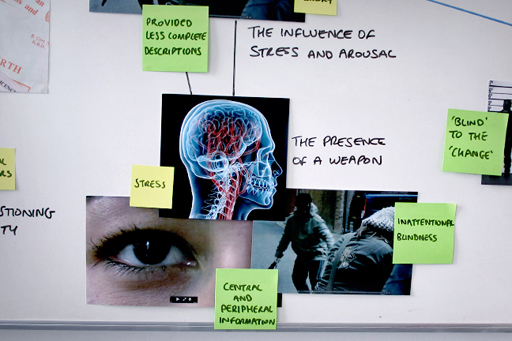2.5 Factors in change blindness

Figure 5
As well as issues to do with how a witness remembers a crime, we have seen that there are also issues to do with how they attend to it:
- Inattentional blindness refers to significant parts of an event going unnoticed, which means, of course, that it is entirely possible for one witness to remember one thing and not another.
- The presence of a weapon might cause witnesses to focus on it at the expense of other aspects of the crime, including the appearance of the perpetrator.
- Central and peripheral information – when witnessing a crime our attention may be drawn to central actions at the expense of descriptive details.
- Stress does not present a simple picture. Just because someone is very stressed does not necessarily mean their memory will be inaccurate. Participants’ memories for certain central, critical details of emotional or violent events tend to be accurate and persistent over time but their memory for peripheral, irrelevant details or surrounding/circumstantial information tends to be less accurate.
